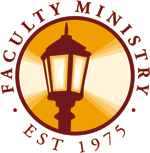
Longtime readers of the blog and members of the Emerging Scholars Network know we have a close relationship with InterVarsity Faculty Ministry. Where ESN helps students and young faculty who are pursuing academic careers, Faculty Ministry serves current faculty, primarily at secular universities, through on-campus gatherings, regional conferences, and The Lamp Post, an email journal edited by Tom Trevethan.
In the Lamp Post, Tom published an essay “On the Dangers of ‘Using’ Scripture,” which serves as a valuable reminder for any of us who seek to connect our work to God’s word. Here’s a brief excerpt:
One of the hallmarks of Evangelical Christianity is our insistence on the magisterial authority of Scripture. While we gladly acknowledge other “authorities,” most notably the authority of the tradition of Biblical interpretation in the Church, the use of reason in interpretation, and the spiritual insight of Christian women and men over the centuries of Church History, all of these norms are themselves normed by the text of Holy Scripture, carefully, rightly, and prayerfully interpreted. Scripture is a class of its own, norma non normata, the un-normed norm for faithful disciples of the Lord Jesus. And when pressed to defend this angular and not infrequently misused conviction, we turn to the Master, who himself bowed consistently to the written Word of God.
This talk of “using the Bible” often arises among leaders, who are eager to persuade others of the rightness of their proposed programs and mission. They turn to Scripture as a powerful, God-given tool for spiritual influence. Where better to find our marching orders as the servant of Jesus than in the written Word? The whole focus is upon how others should agree with us and follow our plans.
Further, Scripture is given, we say, to guide us into God’s way, to tell us what we should do. That is its proper “use.” So we read the Bible to find the answers to our questions. And when we read it, we think of the real goal of Bible reading and study as determining what we should do about the God-given text. Biblical reading and teaching without definitive, quite specific application strikes many of us as disappointing or even sadly deficient. So our preoccupation is with application to ourselves and our families and our churches.
Visit the InterVarsity Faculty Ministry website to follow their conferencing and writing.
The former Associate Director for the Emerging Scholars Network, Micheal lives in Cincinnati with his wife and three children and works as a web manager for a national storage and organization company. He writes about work, vocation, and finding meaning in what you do at No Small Actors.

I am reminded of the moment in the new Hobbit film where Gandalf advises Bilbo that true courage requires discernment on when to draw your sword and when to keep it sheathed. Perhaps it is relevant, or perhaps it is actually expressing the exact opposite sentiment with respect to the notion of mastery.